RedNote downloads skyrocket as TikTok ban in the US looms with ‘refugees’ turning to Chinese app to thwart government order

A wave of American “TikTok refugees” has flocked to a Chinese social media app to protest the potential TikTok ban, as the US Supreme Court weighs its decision on whether the law is constitutional.
The Chinese-native app RedNote was suddenly flooded with English-language content on Monday, with lots of the new users from the US introducing themselves as “TikTok refugees”.
As local users are baffled with the sudden influx of newcomers, many of the “migrants” explain their move is driven by the looming TikTok ban in the US, which could take effect on January 19.
Sign up to The Nightly's newsletters.
Get the first look at the digital newspaper, curated daily stories and breaking headlines delivered to your inbox.
By continuing you agree to our Terms and Privacy Policy.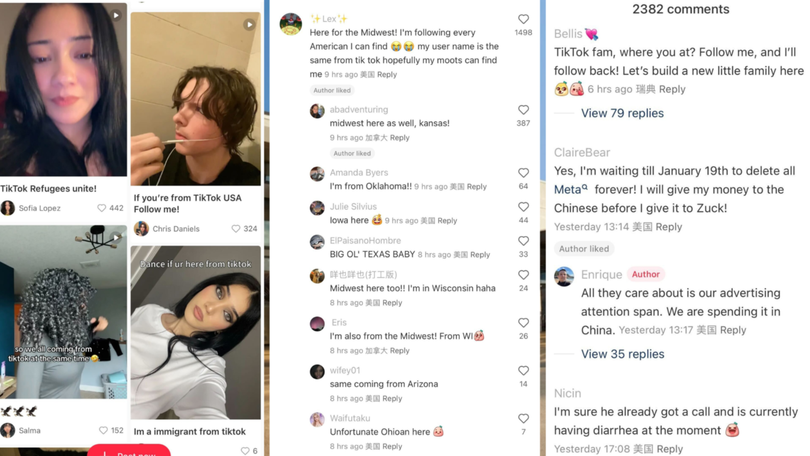
“The reason that our government is telling us they are banning TikTok is because they are insisting that it’s owned by you guys,” one of the “refugees” explained to Chinese users in a video.
“They are trying to make us think that you guys are bad, a lot of us are smarter than that so we decided to piss off our government and download an actual Chinese app,” she said.
The trend started to take off when creators began posting videos about RedNote on TikTok, encouraging more TikTok users to migrate to the platform.
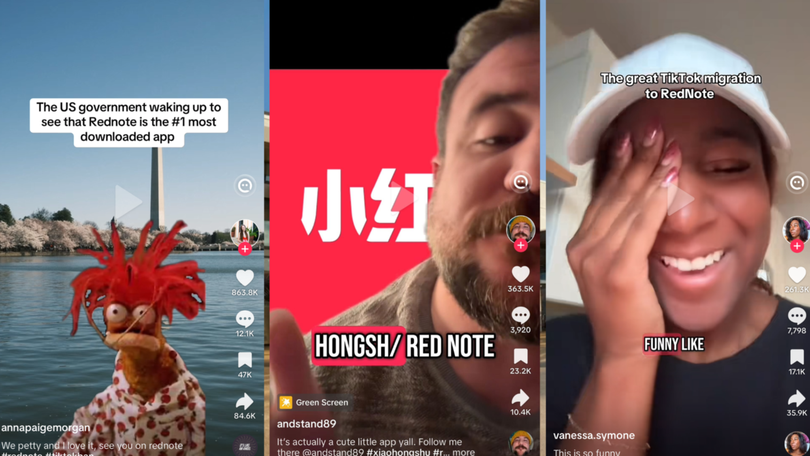
RedNote, an app where users capture their lives through short videos, pictures, and text, is like a combination of Instagram, Reddit, and TikTok.
As of Tuesday morning, it has become the most downloaded free app on the Apple App Store, with “refugees” posting photos and videos of themselves.
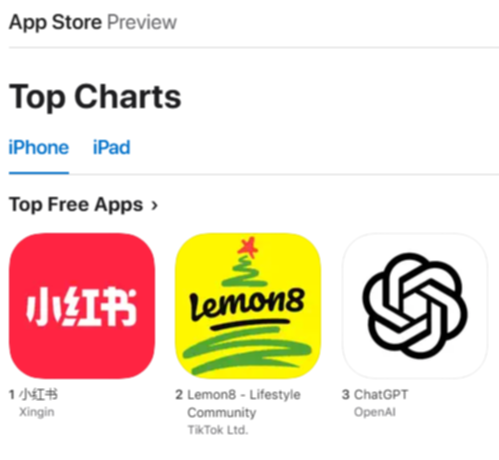
Although the app’s interface is primarily in Chinese, as it was designed for Chinese users, the “TikTok refugees” have expressed their willingness to learn Chinese in order to communicate more effectively.
“It’s a bit of effort but it’s worth it,” one of them said.
Another “TikTok refugee” called this move an “American protest”.
“All of us Americans are not going back to Meta … Our attention is going to China. That’s what Mark Zuckerberg gets, that’s what Congress gets ... We are gonna speak up, we are gonna make our voices heard … This is our protest,” he said in a video.
US lawmakers passed the ban in April last year, demanding that TikTok’s parent company, ByteDance, find a US-approved buyer or face the shutdown of the app across the US.
The company has until January 19 to comply.
The ban was based on national security concerns over the potential sharing of data with the Chinese government.
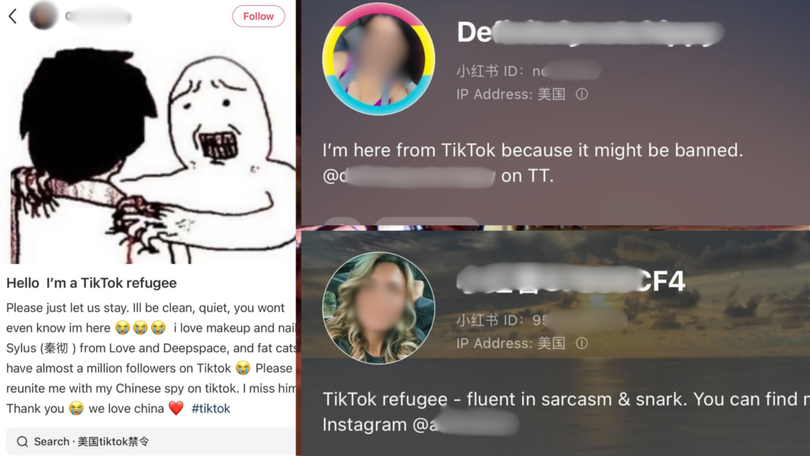
Great Firewall ‘pushed down’ in reverse
People in China have been unable to access social media apps such as Facebook, X, and Instagram for years due to the Great Firewall.
However, with the recent influx, Chinese social media users are saying it feels as though the wall has been “pushed down” in reverse, with people from outside the wall entering a Chinese app.
Some Chinese users have posted tutorials in English as a welcome message to the “TikTok refugees”, many of whom have quickly gained thousands of followers in hours.
However, some local users have expressed feeling overwhelmed by the sudden influx of newcomers, suggesting it’s changing the dynamic of the platform.
Interestingly, a new trend has also emerged in which Chinese students are turning to the “TikTok refugees” for help with their English homework.
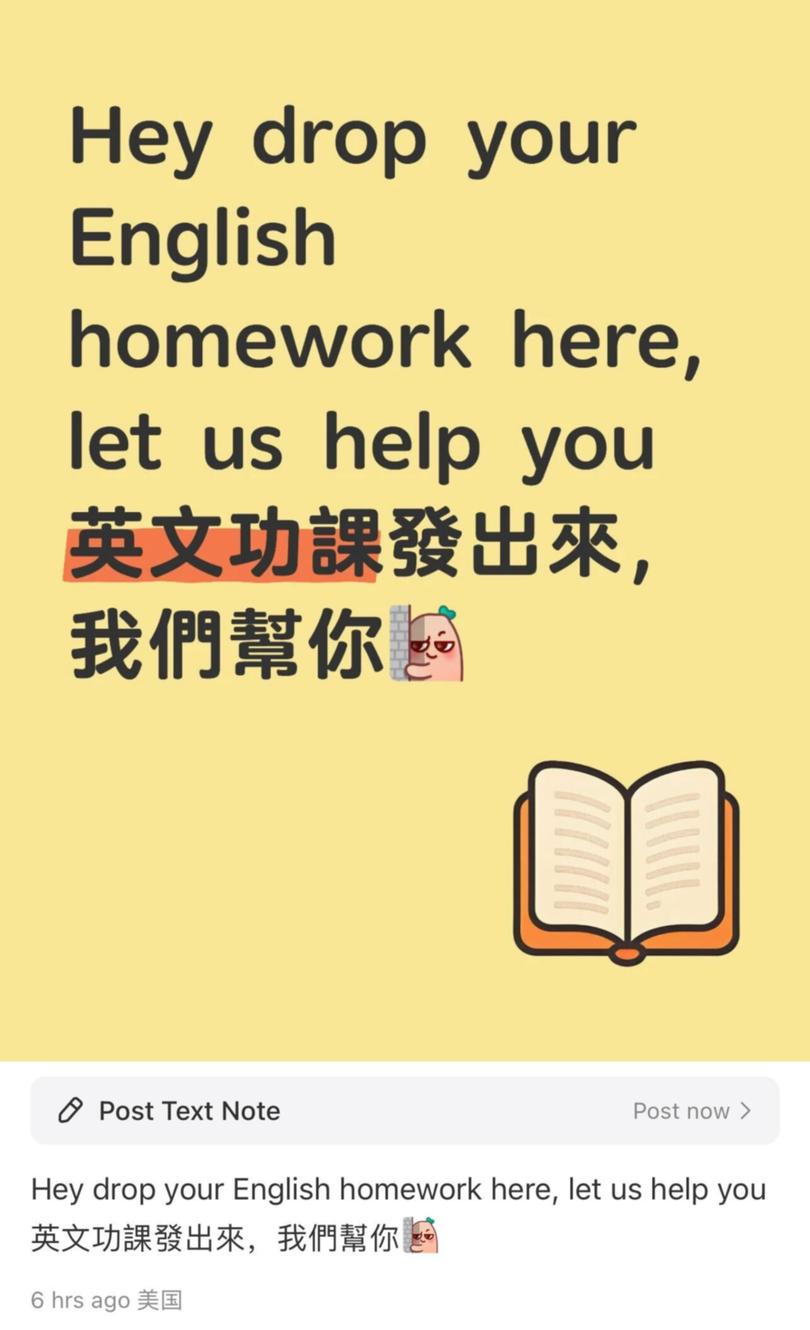
Could it affect Australia’s under-16 social media ban?
In a world first, Australia’s federal parliament has passed legislation banning people under 16 from using social media or opening new accounts.
It is expected to take effect this year, requiring tech companies — including Snapchat, TikTok, Facebook, Instagram, X, and others, regardless of where they are based — to verify the ages of their users.
When asked if RedNote or any similar app could be added to the list, a spokesperson for Communications Minister Michelle Rowland told 7NEWS.com.au that it is a possibility.
“The government’s social media minimum age legislation includes a broad definition of age-restricted social media platforms,” the spokesperson said.
“The new definition of social media is robust and will capture services that are commonly understood to be social media and it will also capture new and emerging platforms.
“These emerging platforms and services will be subject to the laws of Australia.”
Originally published on 7NEWS
